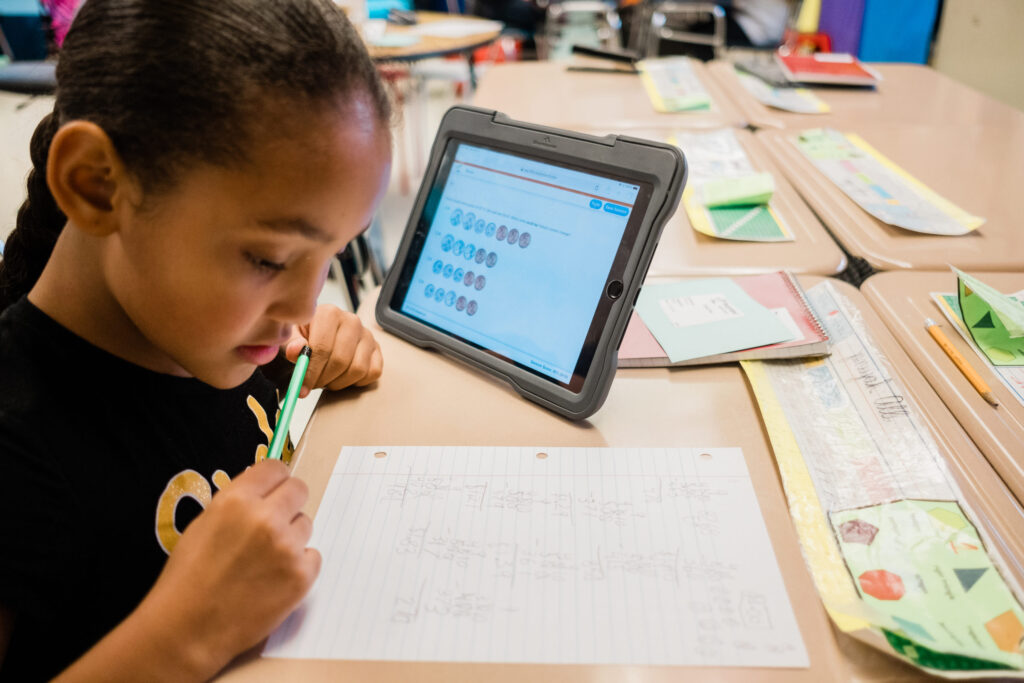Welcome back to our new STEAM series. For two weeks, we’ve been deconstructing the acronym for Science, Technology, Engineering, Art, and Math with posts that explore each subject in a new light.
Researchers have found that kindergarten is more academic than it used to be. Today’s kindergarteners spend about 25 percent more time on early literacy than they did in the 1990s, often at the expense of time for play and for subjects like art, music, and social studies.
At the same time, further research has indicated that kindergarten math is too easy. Researchers at Vanderbilt University found that teachers spent 13 days a month teaching concepts that 95 percent of students had already mastered, like counting and shape recognition. Spending more time on such easier concepts was associated with lower math scores at the end of the year. But teaching more advanced concepts like addition and subtraction benefited everyone, even kids who entered kindergarten with the lowest skill levels.
So does kindergarten math need to be harder? Or more relaxed, to allow more time for socioemotional development? Experts say neither. Like much in STEAM learning, engaging young children in math is not just about what teachers teach, but about how they teach it. While kindergartners may benefit from learning more advanced math concepts, instruction can (and should) be engaging, hands-on, and playful.
“[The] presumed dichotomy—that preschool and kindergarten must either be geared toward play and socioemotional development, or focused on rigorous academic instruction—is false,” wrote researchers Daphna Bassok, Amy Claessens, and Mimi Engel at Education Week. Engel is an assistant professor of public policy and education at Vanderbilt’s Peabody College and lead author of the study about the math mismatch in kindergarten.
Engel and her fellow researchers are not sure why the math mismatch happens. They hypothesize that teachers may be teaching to the curriculum, or perhaps not moving the class along until the students with the lowest skills are caught up. But she believes that slightly adjusting the math curriculum can improve the skills kids have when they leave kindergarten.
Additional research from Professor Greg Duncan at the University of California Irvine has found that early math skills are more predictive of success than reading skills. In a study of 20,000 kindergartners, Duncan found that students who learned the most math skills in kindergarten tended to have the highest reading and math scores years later, even after controlling for IQ and family income.
So there is consensus that early math skills are critical for success and should be taught in engaging ways. But Engel points out that while there is an enormous body of research on effective strategies to do so in reading, there is less agreement in early elementary classrooms on how to teach math in engaging ways. That knowledge is still making its way into classrooms.
In recent years, efforts based out of Pittsburgh, like the Early Learning of Math through Media project, have aimed to help early-education teachers feel more confident about teaching math in conceptual ways that make sense to young learners.
“It’s a great platform to build deeper understanding and confidence among these early educators,” Nancy Bunt, program director for the Allegheny Intermediate Unit’s Math and Science Collaborative, wrote Remake Learning in an email last year about the project.
Science writer and anthropologist Gwen Dewar makes another good point about the findings of the math study. She said that while cynics may say changing math content will have only modest effects on end-of-year test scores, teaching math in a more conceptual, engaging way can affect how kindergartners think of math on the whole.
“How many kids will end the school year feeling excited about mathematics?” she wrote. “How many kids will feel prepared to move onto more advanced topics later?”
Oddly enough, “M” seems to be the least talked-about letter in the acronym STEAM, perhaps because ideas about math are so engrained in many of us. But thinking differently about how teachers approach the subject could mean a lot not just for stronger math skills but for achievement in STEAM learning subjects across the board.
